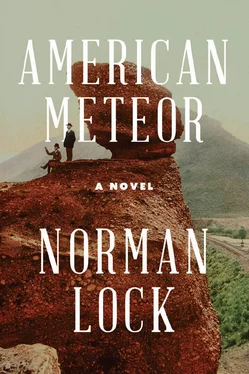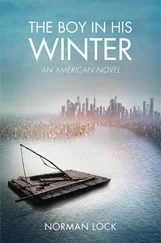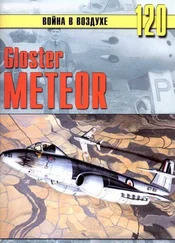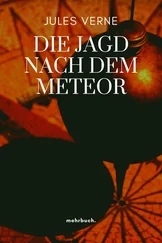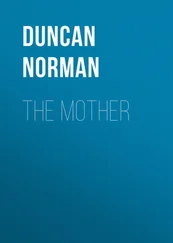And yet she said to me, “Why don’t you stay?”
“What, here in San Francisco?”
“We could open a studio together. Like your Jackson brothers.”
I flirted with the idea while we took the Clay Street Hill Railroad up the steep way to Leavenworth — the city’s first cable car. Two years later, Leland Stanford would build his up Powell Street to save his horses the brutal climb to Nob Hill, showing a laudable sympathy he never wasted on his Central Pacific coolies. Anna wanted me to admire the view of the port beyond the hill, with its Calvary of masts. I did admire it while my mind spun the thread of her notion into a tapestry in which I saw myself photographing the city and its hash of people. At the time, there was nothing like it for novelty and excitement. I thought I could get on well there with her.
“You can make all the outdoor views you like,” she said as we stoked each other’s fancy. “The city’s growing like a field of Jimson weed. I’ll keep on with my portrait work. There’s plenty of business to keep us both busy. After a while, we can take a bigger studio and live on top of it.”
“Might do,” I said, my imagination electric with the prospect of a new start. I saw myself living fixed, in a comfortable room whose window looked out on a street instead of on scenery flying past a train’s or else plodding by at the speed of a mule. I’d been on the move for fifteen years, ever since I boarded the Marion at Brooklyn, a green recruit. I felt played out, as if every mile of the thousands I’d covered had cost me a grain of sand or a particle of the iron a person is born with — call it courage or will, as you like. Suddenly, I felt I’d aged twice over during my twenty-seven years. I was tired of flight and of the black compulsions misdirecting my nagging heart. Who was Custer to me that I should forfeit the ordinary life of a man to destroy him? What was Fire Briskly Burning, or the Lakota Sioux, or the bison and ponies that I should spend unquiet days and restless nights contemplating their piteous ends?
We went into a tearoom near Lotta’s Fountain and ate some fancy scones. The turmoil of my thoughts must have showed on my face; or perhaps Anna, like anyone used to looking hard, was able to see more clearly than most what my face concealed. I was expert at masking my fears and desires.
“What’s wrong, Stephen?”
“Nothing. I’m thinking is all.”
“The frontier’s no place for you,” she said gravely. “Out there is death to a sympathetic nature, to reason — to anything but what is violent and uncouth, selfish and absurd. You’ve seen enough of the Wild West for one lifetime, Stephen. Here, you can begin to mend.”
“Am I broken?” I asked. I knew the answer already, but I was curious to hear her opinion of my. soul. Damn it, Jay, I’ll use the word with or without your blessing! What were Crazy Horse’s dreams if not the glass plate by which his soul was made visible? I could not ridicule the idea of a human soul and still believe in that Indian and his visions of the future. Which I do!
“From what I know of you, yes,” she said softly. “I’m afraid of what will happen when you go back to your wilderness.”
She knew me well enough, for I would go back. I knew it while I washed down the last sweet crumb of scone with the last bitter swallow of tea. The West was an enormous dynamo, and I felt its current pass through my body, aligning my atoms with its own. (Unless I mistook Death for the West. If Anna was right, they were identical.) Custer waited for me in Dakota Territory at Fort Lincoln; Crazy Horse waited for us both by the Little Bighorn.
A commotion outside brought me sharply back to Frisco. A horse had lain down in the street, upsetting a wagon overloaded with sheet iron. The driver was whipping the horse with an iron rod. The crowd that had gathered was divided as to whether he should refrain from or else continue his bloody reprisal. I wished George Osler had been among them with a shovel. I knew then that it didn’t much matter where I happened to be: Everywhere was the same. You know what people are like.
She must have “read my light,” for she shrank back a little and let the conversation die. She never again took up the idea of my staying in San Francisco. So perhaps she was afraid and felt it best to keep herself, finally, at a safe distance from me, like a healthy person does a house under quarantine.
After six days of dithering with my own manifest destiny and deluding myself with the pretty fiction of normality, Custer wired with news of his reinstatement. He was at Fort Lincoln, readying his men for the final assault on the Cheyenne, Sioux, and Arapaho gathered in their thousands by the Little Bighorn River, which the Indians called “Greasy Grass.” I said good-bye to Anna at the depot without regret, eager to join Custer, whose attraction was stronger than love or whatever it was in me that had threatened to deflect my solemn purpose.
The Little Bighorn, Montana Territory, June 25, 1876
While Custer was kissing Libbie good-bye at Fort Lincoln, their avid lips never to join again in this world, Sitting Bull, transcendent war chief and holy man of the Lakota Sioux, was conjuring from the next world an ecstatic vision — conducted, like lightning down a lightning rod, by the sacred pole he danced around in rapture. He saw, he told his two thousand warriors, white men, upside down, riding against the rim of the sun. He saw them fall into the lap of the earth, which belonged to all people and also to animals. Sitting Bull said that in his vision — assembled from atoms of smoke and dream — the white men had no ears because they were deaf to reason and to the persuasions of the Great Spirit.
“It’s through its mysterious power that we, too, have our being,” Sitting Bull told his people, “and because of it we yield to our neighbors, even to our animal neighbors, the same right as ourselves to inhabit this vast land.”
By this vision, Sitting Bull knew that his people were promised a great victory over the pony soldiers riding against them. He did not see and did not say, after dancing the Sun Dance in the Valley of the Rosebud, that in nine years he would ride a horse around the ring in Buffalo Bill’s Wild West show, with Annie Oakley and a few mangy bison tamed by the white man’s whip. Sitting Bull was of the Hunkpapa tribe, a Lakota word meaning “head of the circle.” None can tell when he will trade his place at the top for one at the bottom. Just so, are we caught — all of us — in a desperate round, fixed and inescapable as the moon’s orbit.
Do you believe in coincidence, Jay? If so, it’s easy to dismiss the thread that winds through the life of Sitting Bull and Custer and so much else besides in this, my bewildered recollection of the time when America forged its iron union and annealed it in blood. I don’t believe in it, but, rather, in the providential confluence of all things and beings who share a common earth.
Sitting Bull was as great a man as Lincoln; both were brought to earth by a bullet to the head.
We’ve come to the familiar part of my story, one that nearly everybody knows: the Battle of the Little Bighorn — Custer’s Last Stand, or his “Last Fight,” as it was known by millions who admired the commemorative lithograph distributed in ’96 by Anheuser-Busch to taprooms and saloons from the East Coast to the West. It would bore me to go into it again, and you to hear it. What’s more, I’m nervous and excited finally to have reached the climax of my story.
Suffice it to say, Custer believed he could destroy the Indians by surprise, just as he had done on the banks of the Washita in ’68; and at noon, on the twenty-fifth of June, he prepared to attack the village — the biggest Custer’s scouts had ever seen in thirty years of “Injun-fighting.” A thousand lodges, two thousand warriors, and five thousand women, children, and old men of the Lakota Sioux, Cheyenne, and Arapaho tribes, along with renegades who’d jumped their squalid reservations — all crowded against the Little Bighorn River. After the general had divided the regiment into thirds and sent Major Reno’s and Captain Benteen’s columns elsewhere, his remaining battalion consisted of just two hundred and ten troopers unseasoned in frontier warfare and a photographer outfitted with a camera and a darkroom tent.
Читать дальше
